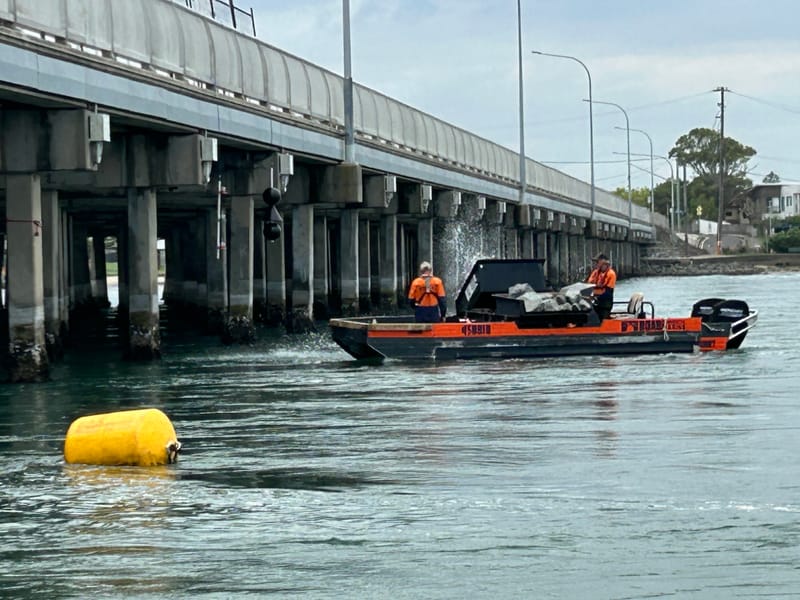'Shark Safety Requires Evidence, Not Outdated Nets'
An opinion piece by Wollongong City Councillor Jess Whittaker At this time of year, every year, the debate about outdated shark nets rears its head. And at this time, every year, beachgoers, the broader public and the government grapple with two...

An opinion piece by Ward 1 Wollongong City Councillor Jess Whittaker
At this time of year, every year, the debate about outdated shark nets rears its head.
And at this time, every year, beachgoers, the broader public and the government grapple with two uncomfortable truths about sharks and the nets that are supposed to keep them away from the shore.
The first is there is no irrefutable evidence, despite decades of research, that shark nets are effective. You would be forgiven for thinking nets are a barrier between swimmers and sharks, but they are not.
There are nets positioned off 51 beaches between Newcastle and Wollongong and rather than enclosing the beach, they merely occupy a 100 to 150 metre stretch a few hundred metres from shore.
The nets are about six metres in height and are suspended in the water with gaps between the surface as well as the ocean floor. This means sharks can swim over, under and around the net.
Not only are nets ineffective, but they can actually make the waters less safe for all creatures, be it people, sharks or other marine life.
The nets are essentially loose fishing devices that entangle marine life indiscriminately, leading to higher rates of bycatch such as dolphins, turtles and rays. As these distressed animals thrash around they can attract sharks closer to the shore.
The second uncomfortable truth we must accept is that, as a coastal population of ocean users, we will never reduce the risk of shark interactions with humans to zero.
Shark attacks have similarities with other tragic events like drownings, road fatalities and workplace accidents in the sense that we will never be able to eliminate them.
The challenge is to minimise risk and respond rapidly when incidents occur. The ocean is the natural habitat of sharks, and expecting absolute safety is unrealistic.
This does not mean we cannot put in place smarter strategies to reduce the already rare likelihood of attack. More to this, NSW actually leads the world when it comes to shark mitigation technology.
The state’s SharkSmart program was implemented in 2015 and provides a range of measures to reduce the risk of shark interactions, such as drone surveillance, drum lines with tagging and monitoring of target sharks, education programs and rapid response trauma kits distributed to surf clubs and board riders clubs.
However, SharkSmart’s success is being undermined by the lack of effectiveness of nets and plummeting community support for the practice. Instead of investing in more effective, evidence-based measures, millions are still funnelled into maintaining outdated nets.
Looking ahead, NSW must build a shark management strategy firmly grounded in science, not outdated theories or public pressure rooted in fear from the lingering shadow of Steven Spielberg's Jaws. We need to gain a deeper understanding of sharks and not continue to portray them as cinematic villains rather than wildlife.
Sharks are keystone predators that help maintain balance in marine ecosystems. Living in Australia means embracing our relationship with the sea — and that includes learning to coexist with its most iconic inhabitants.

About the writer
Jess Whittaker is a paramedic and a Wollongong Greens councillor for Ward 1.
15/09/2025: Article updated.





